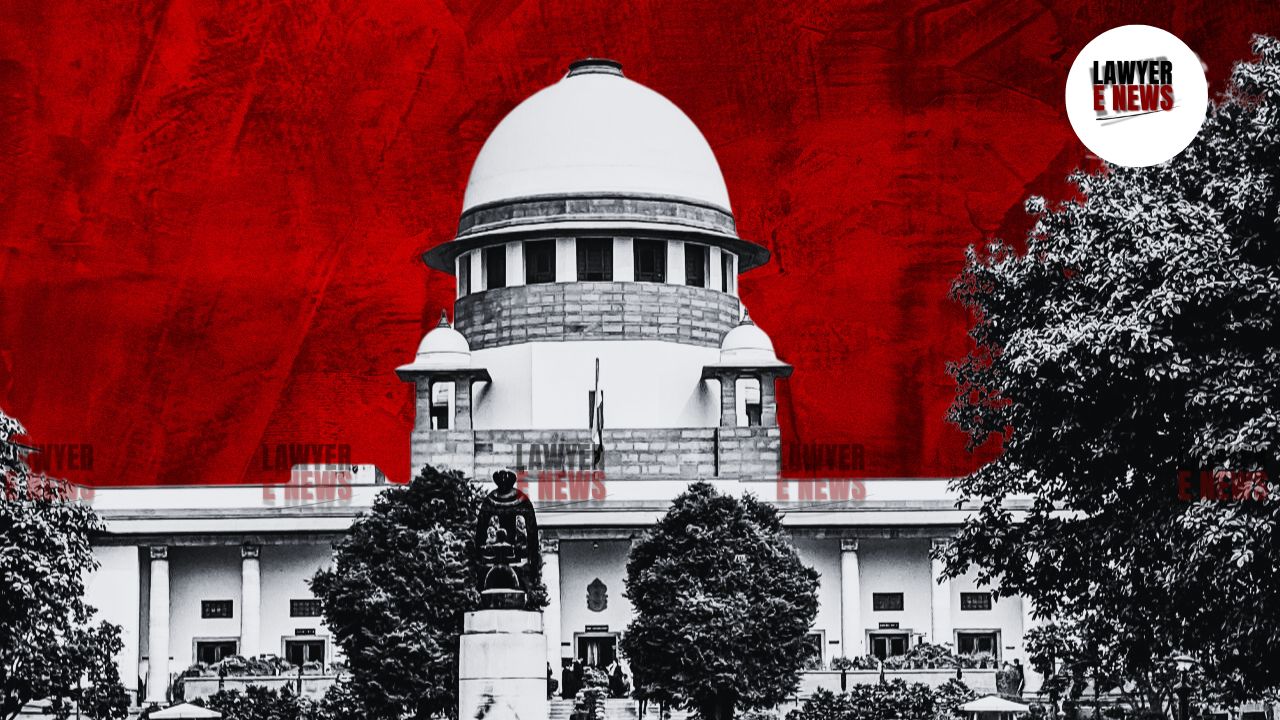-
by Admin
15 February 2026 2:36 AM



In a latest Judgement Supreme Court of India addressing the scope of High Court intervention under Article 226 of the Constitution in matters arising under the Insolvency and Bankruptcy Code, 2016 (IBC). A Bench comprising Justice Pamidighantam Sri Narasimha and Justice Manoj Misra held that the High Court’s interference in the Corporate Insolvency Resolution Process (CIRP) of Associate Décor Ltd., particularly its decision to set aside an approved resolution plan, was unwarranted and disrupted the discipline and timelines prescribed under the IBC.
The Court emphasized that the IBC is a complete code in itself, with sufficient remedies for aggrieved parties, and that judicial interference by High Courts should be sparingly exercised in exceptional cases. The appeals, filed by the successful resolution applicant, the Committee of Creditors (CoC), and the resolution professional, were allowed, and the High Court’s judgment was set aside.
The CIRP against Associate Décor Ltd., initiated at the instance of Oriental Bank of Commerce (a financial creditor), commenced on October 26, 2018. Mohammed Enterprises (Tanzania) Ltd. (METL), the successful resolution applicant, had its resolution plan approved by the CoC on February 11, 2020, with a unanimous 100% voting share. However, Farooq Ali Khan, a suspended director of the corporate debtor, challenged the resolution plan, alleging violations of the principles of natural justice due to inadequate notice before the 19th CoC meeting.
The resolution plan was subject to multiple challenges, including interlocutory applications before the National Company Law Tribunal (NCLT) and appeals to the National Company Law Appellate Tribunal (NCLAT). Despite these proceedings, the resolution plan was upheld by the NCLAT on September 19, 2022. Subsequently, the Supreme Court dismissed a related challenge by a third party, Swamitva Consortium, on November 25, 2022.
Despite pursuing remedies under the IBC framework, Farooq Ali Khan approached the Karnataka High Court in January 2023 under Article 226, seeking to quash the CoC’s approval of the resolution plan. The High Court allowed the writ petition on April 22, 2024, holding that the principles of natural justice were violated as the respondent had allegedly received insufficient notice before the 19th CoC meeting. The High Court’s order was challenged before the Supreme Court by the successful resolution applicant, the CoC, and the resolution professional.
The Supreme Court unequivocally held that the High Court erred in entertaining the writ petition and setting aside the resolution plan. The Court outlined several reasons for its decision:
Delay in Filing the Writ Petition:
The Court noted that the CoC approved the resolution plan on February 11, 2020, and the respondent approached the High Court only in January 2023, almost three years later. The Court observed that the respondent had actively participated in proceedings under the IBC framework, including filing an interlocutory application before the NCLT in October 2022 seeking rejection of the resolution plan on similar grounds. The delay in approaching the High Court, coupled with the availability of remedies under the IBC, rendered the writ petition unsustainable.
“The initiation and continuation of proceedings under the IBC cannot lend any justification whatsoever to approaching the High Court so late.”
Complete Code Under the IBC:
The Court reiterated that the IBC is a self-contained code providing comprehensive remedies for stakeholders, including appeals to the NCLAT and the Supreme Court. It emphasized that High Court intervention should be limited to rare and exceptional cases.
“Unjustified interference by High Courts in CIRP proceedings disrupts the discipline and objectives of the IBC, which seeks to ensure the timely resolution of insolvency cases.”
Principles of Natural Justice:
The respondent claimed that insufficient notice before the 19th CoC meeting violated the principles of natural justice. However, the Court found that the records showed that notice for the meeting was duly issued. It held that mere assertions without concrete evidence cannot invalidate the CIRP process.
“The IBC framework ensures adequate opportunities for all stakeholders to participate in the CIRP. Mere assertions of insufficient notice are insufficient to invoke principles of natural justice to vitiate the resolution process.”
Impact on CIRP Finality:
The Court observed that the CIRP had been ongoing since 2018, and the resolution plan was approved in 2020. The High Court’s intervention in 2023 disrupted the finality of the process, undermining the discipline and efficiency that the IBC seeks to promote.
“The importance of concluding CIRP proceedings expeditiously has been underscored by this Court on numerous occasions. The High Court’s interference breached the IBC’s objectives and delayed the resolution process.”
The Supreme Court allowed the appeals, setting aside the High Court’s judgment dated April 22, 2024, in Writ Petition No. 483 of 2023. The Court directed the Adjudicating Authority (NCLT) to resume the CIRP from the stage where it was disrupted by the High Court and complete the proceedings as expeditiously as possible.
“Adherence to the IBC framework is essential for maintaining legal discipline and preserving the balance between the need for order and the quest for justice.”
The Court also clarified that there was no need to examine the merits of the respondent’s offer or compare it with the approved resolution plan, as the High Court’s interference was procedurally unsound.
This ruling reinforces the Supreme Court’s consistent stance that the IBC is a complete code, and High Courts should exercise restraint while interfering in CIRP proceedings. By emphasizing the importance of adhering to the IBC framework, the Court has sought to prevent delays and ensure the timely resolution of insolvency cases.
The judgment also highlights the principle that judicial remedies must be pursued within the timelines prescribed by the IBC and that invoking Article 226 cannot be used as a substitute for statutory remedies unless exceptional circumstances exist.
This decision will serve as a precedent to deter unwarranted challenges to CIRP proceedings and strengthen the efficiency and credibility of the IBC process.
Date of Decision: January 3, 2025
